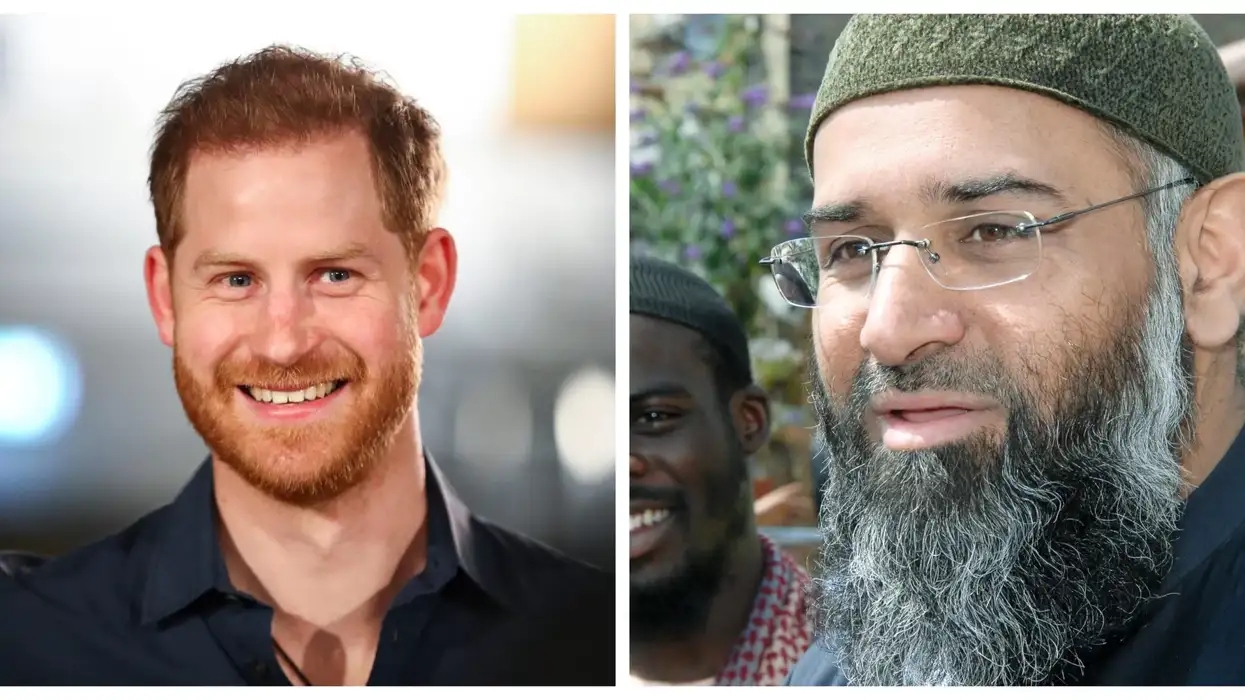British extremist Anjem Choudary has called Prince Harry a ‘Muslim killer’ after his revelations in memoir and said that the Royal family has a 'dark history of occupying Muslim lands, the MailOnline reported.
In his highly personal book 'Spare', Harry said that he had killed 25 people in Afghanistan when serving as a military helicopter pilot in Afghanistan.
Choudary, 55, who inspired the murderers of soldier Lee Rigby, said that the Duke of Sussex has shown ‘his true colours’ and he urged his followers to target British troops across the world.
"The latest revelations from Harry that he murdered 25 Muslims in Afghanistan followed by his comment that he has no remorse and that he just saw these human beings as “chess pieces” tells us everything we need to know about the Royal Family and their thinking about Islam and Muslims," the MailOnline report, quoting Choudary's online response to Harry's comments, said.
"In reality, the British Royal Family has a long and dark history of supporting the occupation of Muslim lands, the usurpation of its resources and the oppression of Muslims."
He added: "The world now knows of the wickedness that the US, UK and others engaged in, including repeatedly murdering innocent unarmed Muslims… Nevertheless, Harry still saw fit to plunge his knife further into the hearts of Muslims with his callous boastful comments.
The hate preacher concluded his statement by urging Muslims to target British troops in Syria, Iraq and North Africa.
Earlier, the Taliban administration has also criticised Prince Harry's comments.
Abdul Qahar Balkhi, spokesperson for the Taliban-led Afghan foreign affairs ministry, said: "The western occupation of Afghanistan is truly an odious moment in human history and comments by Prince Harry is a microcosm of the trauma experienced by Afghans at the hands of occupation forces who murdered innocents without any accountability."
Meanwhile, prominent politicians in UK condemned Choudary's comments and warned of a raised threat to the Royal Family and Armed Forces.
Former Tory leader Iain Duncan-Smith has urged the police and security services to act as Choudary should no longer 'be free to act accordingly in the UK'.
"Whatever your views on Harry’s comments, the real danger is right there with this hate preacher, trying to whip people up to violent actions. These people have no place in a peaceful democracy," he told the MailOnline.
"This statement by Choudary is abhorrent, and puts lives at risk. I condemn it. He has to understand that British troops are out there to serve our interests, and so he should not be calling for their heads," Khalid Mahmood, Labour MP for Birmingham Perry Barr, was quoted as saying by the MailOnline.
Tory MP Tobias Ellwood, urged Prince Harry to clarify his earlier remarks to stop others from issuing extremist rants like Choudary.
Choudary was an active member of the hardline Islamic group Al-Muhajiroun. He became its leader in 2005 and remained in the post until it was banned in 2010.
Two of his followers beheaded British soldier Lee Rigby outside Woolwich barracks in South-East London in May 2013.
Many of his followers ended up fighting for the Daesh in Syria, including his bodyguard, Mohammed Reza Haque, nicknamed Jihadi Giant.
Choudary received a five-and-a-half-year sentence in 2016 for openly endorsing the Daesh. After serving less than half of the sentence, he was released in 2018.
The Ilford-resident was subject to strict licence restrictions, but he is now permitted to preach. The Treasury has blocked his assets, and the UN has classified him as a global terrorist, preventing him from leaving the country.





